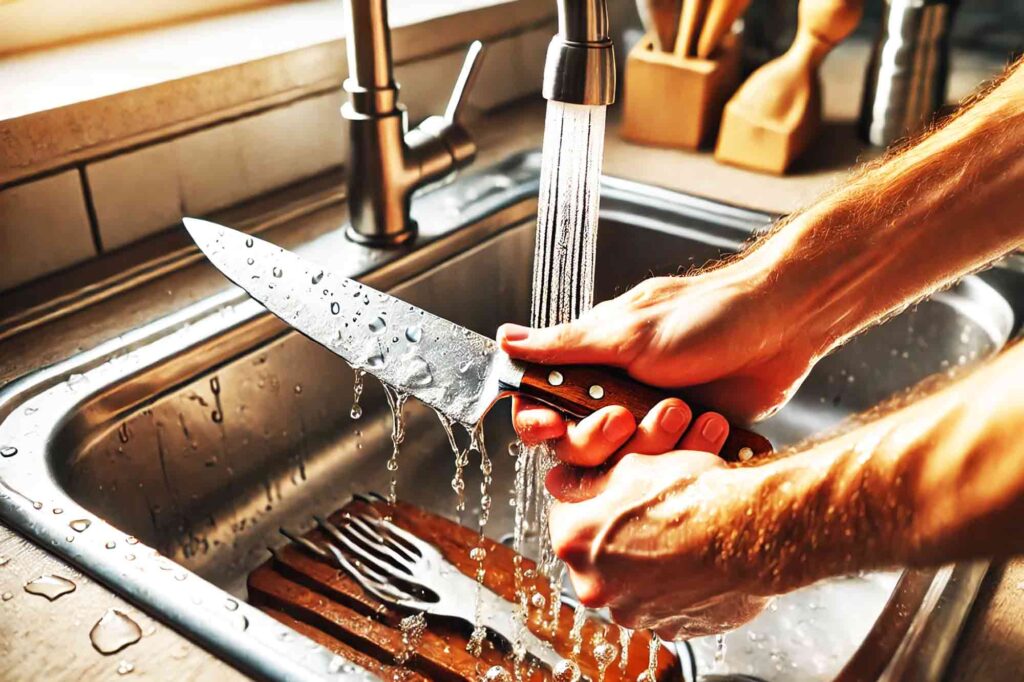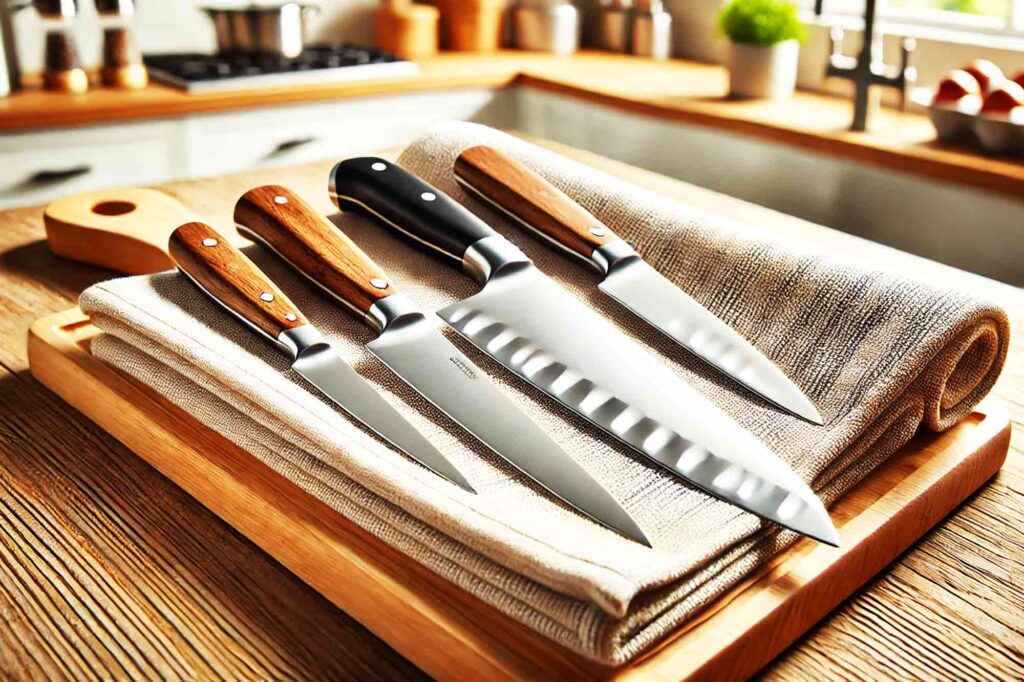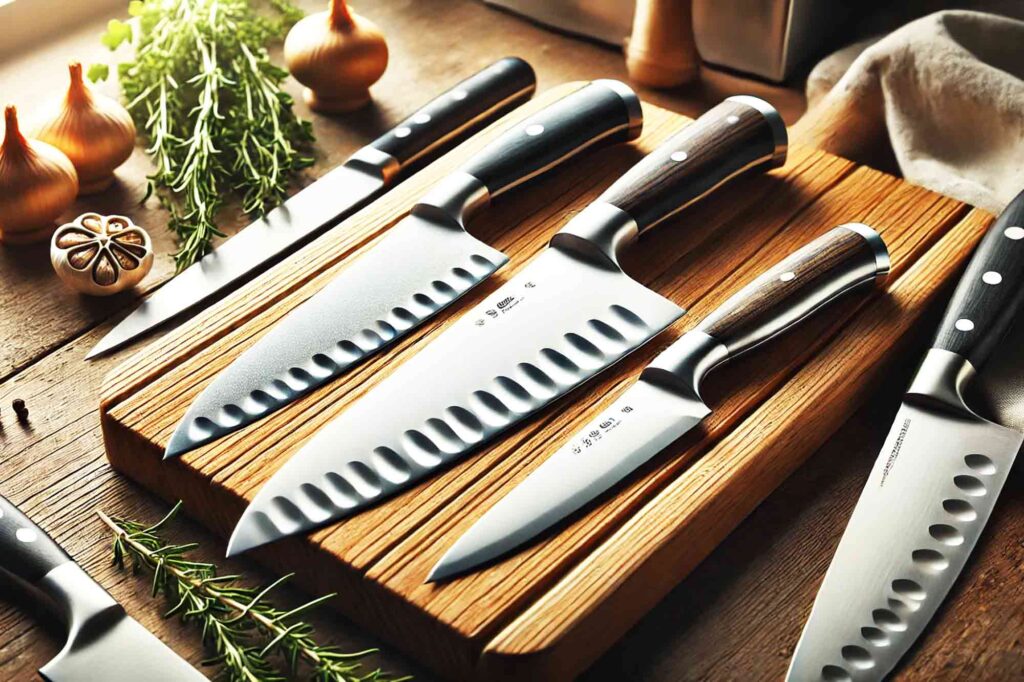What You Should Never Do With Your Knives?
Taking care of your kitchen knives is as important as using them correctly. No matter how skilled you are in the kitchen, neglecting proper knife maintenance can lead to damaged tools and even accidents.
Let’s dive into the common mistakes to avoid and a bit of the history behind why knife care matters.

Never Put Your Knives in the Dishwasher
Even though some might be labeled as dishwasher-safe, it’s best to avoid this entirely. The high heat, harsh detergents, and strong water jets can dull the blade and damage the knife handle. This is especially true for knives with wooden handles, which can crack or warp from too much moisture.
Historically, they were made with great care, often by hand, and were considered prized possessions, meant to last a lifetime. So, it’s essential to treat them with the same respect they were given in the past.
Don’t Leave Knives Soaking in Water
Leaving a knife soaking in water, especially with other dishes, can be harmful. Not only does it risk dulling the blade, but it also promotes bacteria growth. Plus, reaching into a sink full of water with a hidden knife can lead to accidental cuts.
In ancient times, were cleaned immediately after use, often by wiping them down carefully with a cloth. This tradition carries on today as a good habit that helps keep knives sharp and safe.

Always Dry Your Knives Immediately
After washing, dry your knife right away. Water and steel don't mix well over time. Excess moisture can cause rust spots to form, even on stainless steel blades. Wooden handles, if left wet, can absorb water, swell, or crack, reducing the lifespan of the knife.
This is especially important for carbon steel knives, which are more prone to rusting.
Additional Tips for Knife Care
Sharpen Regularly
Dull knives are more dangerous than sharp ones. Regular honing can keep your knife in optimal condition.
Store Properly
Always store them in a knife block or magnetic strip, never loose in a drawer. This prevents the blades from getting damaged and reduces the risk of injury.
By avoiding these common mistakes and following these simple tips, you’ll keep your knives in great condition for years to come. After all, a well-maintained knife is not only safer but also much more efficient in the kitchen.




